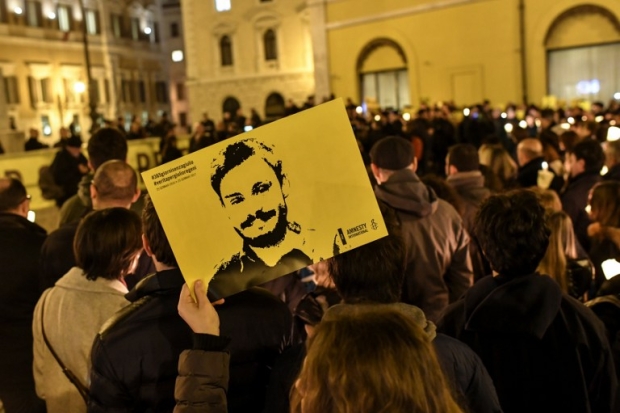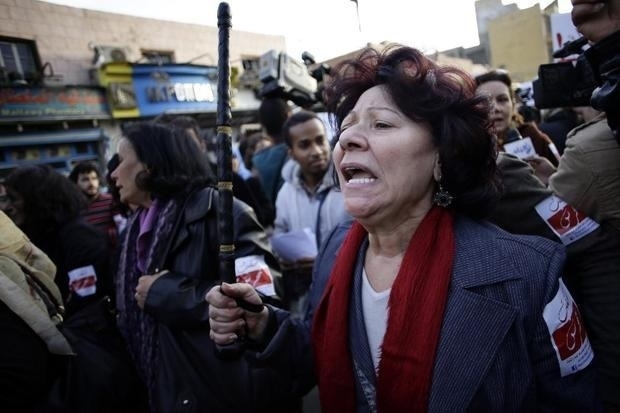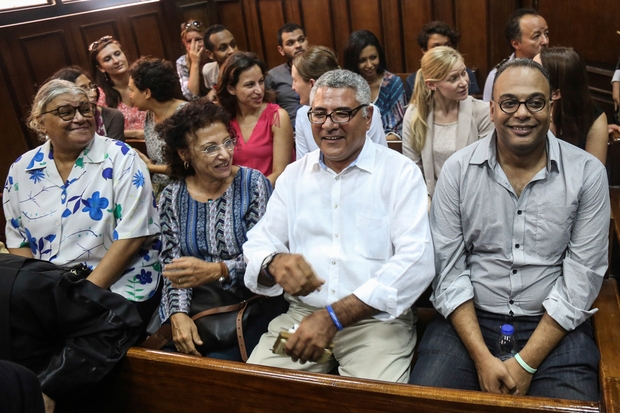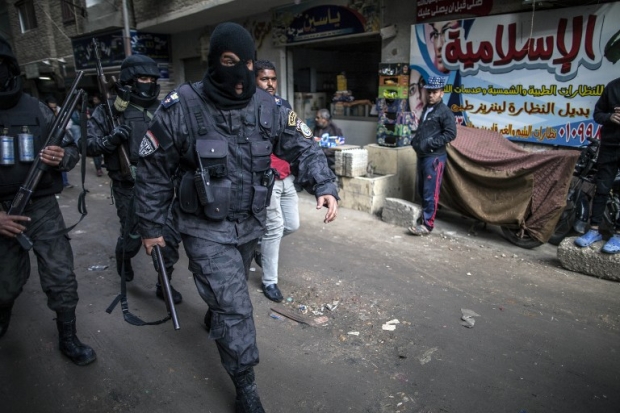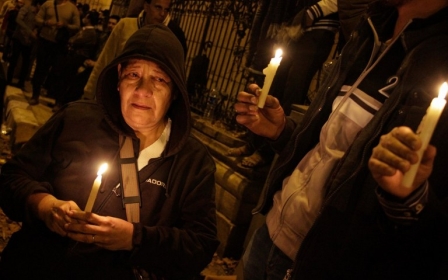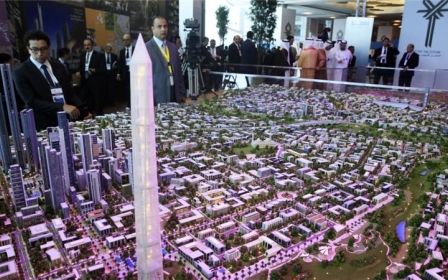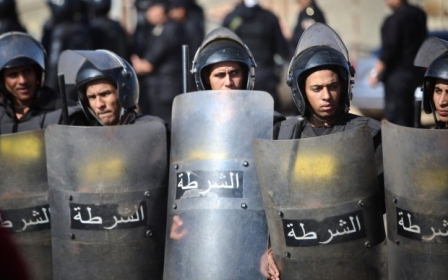Sisi’s war on Egyptian NGOs
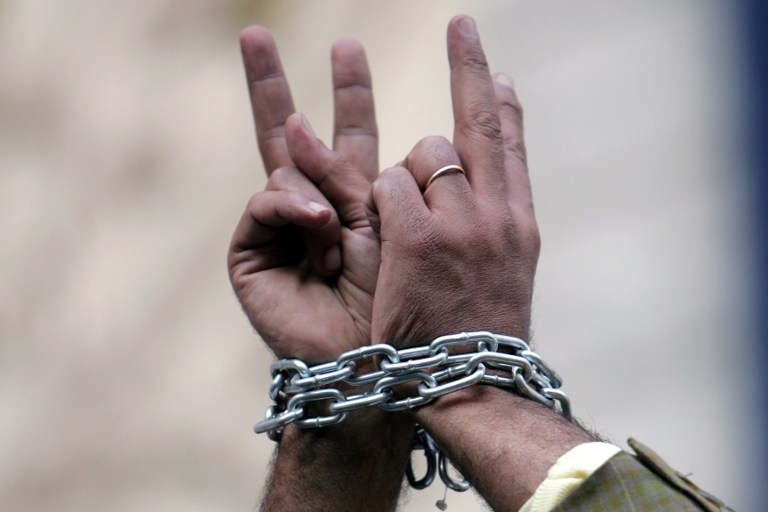
When the body of Giulio Regeni, a Cambridge researcher who was studying Egyptian labour unions, surfaced by the side of a desert road on Cairo’s periphery in February 2016, it bore the hallmarks of security apparatus torture techniques.
One year later, Khaled Shalaby - whose role into Regeni's torture and killing was reportedly investigated and who has remained a controversial figure associated with the researcher's death - has been promoted to director of security for Faiyum Governorate.
It’s nearly impossible to check a dictator when you are literally fighting for your existence as an organisation
Welcome to Egypt where the police state is rewarded at every turn while the organisations tasked with monitoring their systematic abuses are punished.
It’s an era when checks and balances are needed more than ever, but war has been declared not on the criminals, but on NGOs.
While one camp utilises tailor-made laws to strip away the other’s influence along with healthy dollops of thuggery, the other documents those attacks, educates the public and aids the abused.
The threat of civil society
There is a plethora of academic literature outlining how civil society could be a socio-political ladder to a more democratic paradigm. NGO workers know this, but predictably, so do draconian rulers.
With Mubarak in power, the theatre of democracy was maintained with soft power and unwritten red lines. That sort of cunning is how Mubarak ruled for three decades.
Though nothing was easy for NGOs under Mubarak, a cat-and-mouse game between ruler and organisations allowed some room for the groups to function and for Mubarak to pretend to be taking democratic steps.
NGOs are being brutalised by a regime that wants an uneducated populous, a jailed opposition and a silent civil society
Sisi, on the contrary, is as subtle as a red suit at a black tie affair. His antics are rooted squarely in an anti-revolutionary camp that stretches back to 2012, when the Egyptian government chose to up the ante against NGOs.
Five years ago this month, a Cairo criminal court started proceedings against 43 NGO workers, including 19 American citizens. “The case is very big…and includes hundreds of people,” the judge said at the time.
The charges were penal rather than political. The NGOs, the judge argued, had failed to pay taxes and their employees had entered Egypt on tourist visa – after the government had refused to accredit them.
The investigation was a resounding political message, driven by Fayza Abou El Naga, a Mubarak holdover whom successive regimes had trotted out when raising the "do not interfere" flag. The message to foreign and domestic NGO employees? We are coming after you.
Most of the defendants, the majority of whom were tried in absentia, eventually received five-year prison sentences and their NGOs were closed in Egypt.
The case marked a turning point in relations between Egypt, America and Europe. An American journalist, a year later, would astutely describe American hegemony in the region as being in “freefall” and American ability to shape events in a “death spiral”.
Win-win to lose-lose
Since the 2012 ruling, Sisi has turned up the furnace on any person or organisation fighting for people’s rights. From an autocrat’s perspective, these attacks, alternating between jail, freezing assets, closing offices and toughening NGO laws, make sense, but they uncover an ugly underbelly of a repressive beast.
Take the example of Aya Hijazy. After the revolution, the 29-year-old Egyptian-American returned to Egypt with her husband, full of hope that she could help the country’s often forgotten street children and started the Belady foundation.
Since the 2012 ruling, Sisi has turned up the furnace on any person or organisation fighting for people’s rights
This should have been a win-win proposition for the government which lacks funds and the political persistence to see through a project like Hijazy’s. But in the Egyptian regime’s "cut your own nose to spite your face" mindset, Aya’s success would only uncover the government’s failure.
Presto: Aya and husband were sent to jail on charges of abusing the very children she came to help, just one of countless cases that show a ruling circle, to quote an Egyptian proverb, that will not “bless or allow blessings”.
When then Vice President-elect Mike Pence met with Egyptian Foreign Minister Sameh Shoukri in December, Aya and her husband’s case was not “raised specifically,” according to Shoukri.
Enemies of the state
But where the government really skips folly and hurtles towards unmatched foolishness is in its systematic attacks on human rights NGOs.
In a country where torture is as much a mainstay as fava beans, an NGO like the Nadeem Center for the Rehabilitation of Victims of Violence is paramount. Instead, Nadeem and others are treated like a foreign enemy.
Of course, that’s no surprise in a police state like Egypt that firmly believes that the ends justify the means. But under Sisi, the tactic has shifted from damage limitation to total evisceration.
On 9 February, police sealed off the 24-year-old centre – which they had twice tried to shut down previously - accusing the NGO of violating the terms of its license; Nadeem officials, however, say they haven’t violated any rules.
Still, as Aida Seif el-Dawla, one of the co-founders of Nadeem whose last name quite ironically means "sword of the state", posted on Facebook after the closure, “Nadeem is an idea and ideas don’t die”.
'Hijacked'
To frame its war legally, the government relies on the speaker of the Egyptian parliament, Ali Abdel Aal, a man well-known for forgetting the word “no” when Sisi calls on him to do his bidding.
The parliament, Aal has said, “is wholeheartedly united” behind the new NGO law, passed late last year.
The NGO law’s legal parameters are so intentionally vague so as to make the most inane, everyday activities potentially prosecutable
The law’s legal parameters are so intentionally vague so as to make the most inane, everyday activities potentially questionable and prosecutable as “destabilising the national unity, national security”.
Not only does the new law limit the ability of NGOs to function properly, but it also points a nefarious finger at any NGO that accepts foreign funding, in many cases suggesting that these organisations have committed treason.
All NGOs, even those that support the regime, have been hurt by the new law. Shortly after the law passed, famous Egyptian actor Mohamed Sobhy - who founded an organisation to help develop the country’s slum areas - said NGO work had been “hijacked”.
Libraries shut
For authoritarianism to flourish, ignorance must be the order of the day. So it should come as no surprise that books are under attack as well.
Gamal Eid, human rights lawyer and founder of the Arab Network for Human Rights Information (ANHRI) wrote in the New York Times last April that the government’s case against him revolved around his role in founding the ANHRI.
He said he was accused of harming the state’s reputation, forming an organisation outside of the law and receiving foreign funding to support terrorism – all charges he denied.
To further punish Eid, the government went after a local library project he headed up. People would donate books to children in need, particularly in governorates outside of Cairo, and volunteers would run these libraries.
Names likes these are but the tip of an iceberg of leading Egyptian human rights defenders who have been slapped with travel bans and asset freezes
One by one, after his case ramped up, the government systematically closed the libraries without giving any official reason.
There is nothing accidental about these cases. Names like Bahaa El Din Hassan of the Cairo Institute for Human Rights Studies (CIHRS), and Mohamed Lotfy, director of the Egyptian Commission for Rights and Freedoms (ECRF); Azza Soleiman, chairwoman of the board of trustees of the Egyptian Women’s issues Foundation (EWIF) and Mozn Hassan, founder and executive director of Nazra for Feminist Studies, are but the tip of an iceberg of leading Egyptian human rights defenders who have been slapped with travel bans and asset freezes.
Whether it is women’s issues, like those defended by Soleiman and Mozn, or human rights like those which Hassan and Lotfy work on, NGOs are being brutalised by a regime that wants an uneducated populous, a jailed opposition and a silent civil society.
After all, it’s nearly impossible to check a dictator when you are literally fighting for your existence as an organisation.
Egypt’s riskiest business
There are few arenas in the political sphere that crystalise the struggle between the revolutionary 25 January ethos and the resultant counter-revolution better than the NGO faceoff.
Whereas a strategically subtle Mubarak almost exclusively used one law - Law 84 of 2002 which gave government "sweeping powers over all registered NGOs operating in Egypt" - Sisi prefers the punch in the face approach.
"We go to work not knowing, if after being called in by State Security, whether we will return home or not," an NGO source told me
There is nothing partial here. The state, with a blank check from its ruler, is looking to “silence or subdue the entire spectrum of civil society”. From activists to those pursuing initiatives from the artistic to the political, no one is exempt. Even cafes are under attack.
Those operating in the dangerous waters of NGOs in a country like Egypt understand the stakes and will not cower away.
But make no mistake: the attack on NGOs is unprecedented and the goal, through demoralising, undercutting and paralysing these organisations, is to change the language of discourse between the regime, NGOs and the people.
Nonetheless, working for a human rights NGO has become Egypt’s riskiest business. “We go to work not knowing, if after being called in by State Security, whether we will return home or not,” a well-place source in the NGO community told me.
“I was lucky to have only received death threats,” Bahaa el Din Hasan told the UN Human Rights Commission in Geneva last year.
For the regime and NGO workers alike, this war is nothing short of existential.
- Amr Khalifa is a freelance journalist and analyst recently published in Ahram Online, Mada Masr, The New Arab, Muftah and Daily News Egypt. You can follow him on Twitter@cairo67unedited.
The views expressed in this article belong to the author and do not necessarily reflect the editorial policy of Middle East Eye.
Photo: An Egyptian human right activist with chained hands gives the V-sign for victory during a protest against torture in police stations in Cairo in 2007 (AFP)
New MEE newsletter: Jerusalem Dispatch
Sign up to get the latest insights and analysis on Israel-Palestine, alongside Turkey Unpacked and other MEE newsletters
Middle East Eye delivers independent and unrivalled coverage and analysis of the Middle East, North Africa and beyond. To learn more about republishing this content and the associated fees, please fill out this form. More about MEE can be found here.



